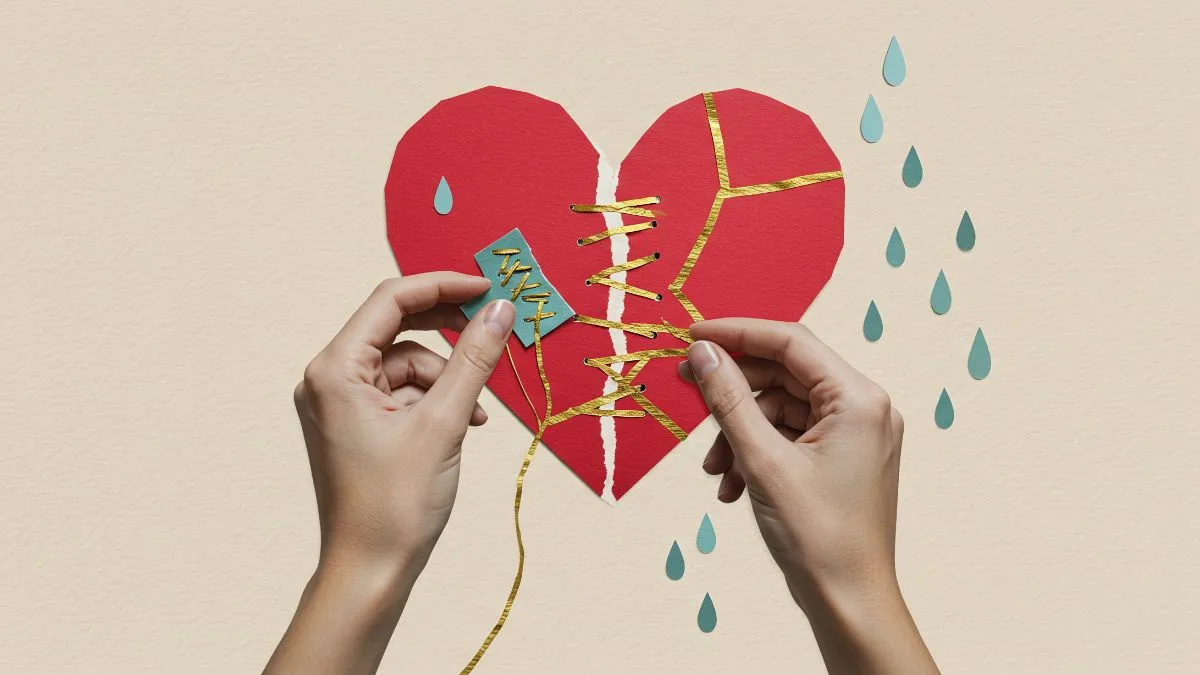- By Bornika Das
- Mon, 27 Oct 2025 06:11 PM (IST)
- Source:JND
Broken Heart Syndrome is an actual medical condition where intense emotional or physical stress leads to a sudden weakening of the heart muscle. While usually initiated by profound sorrow, shock, or terror, the syndrome shares the appearance of a heart attack. Most patients present with chest pain, shortness of breath, and fatigue, resulting in confusion upon diagnosis. Experts say that when experiencing emotional anguish, the body lets off stress hormones such as adrenaline, which temporarily immobilise the heart. Astonishingly, even very healthy people can develop this condition when their bodies experience severe emotional trauma.
This syndrome also shows the deep connection between the heart and the brain, demonstrating how emotional pain could be translated into physical disease. It is said that even though the structure of the heart tends to correct itself within weeks, the onset is risky and must be treated promptly. Women, especially postmenopausal women, are also likely to develop this condition because of alterations in hormone levels impacting cardiovascular function. In conversation with The Daily Jagran, Dr. Bipeenchandra Bhamre, Consultant Cardiac Surgeon at Sir H. N. Reliance Foundation Hospital and Research Centre in Mumbai, shares how stress can weaken and heart and talks about its management and treatment.
What Is Broken Heart Syndrome?
Broken heart syndrome, or Takotsubo cardiomyopathy, is a condition where the heart muscle suddenly weakens due to extreme emotional or physical stress. It often occurs after events such as the loss of a loved one, a major accident, or even intense fear. Dr. Bipeenchandra Bhamre states, “Unlike a heart attack, it is not caused by blocked arteries but by a sudden surge of stress hormones affecting the heart’s pumping ability.” The exact cause of this condition is unclear.
Recommended For You
ALSO READ: How High Blood Pressure Leads To Heart Attacks? Doctor Explains
However, the other causes include the death of a close person, a breakup or divorce, serious illness or surgery, extreme fear, anger, or shock, and financial or work stress. The symptoms are chest pain, shortness of breath, irregular heartbeat, dizziness or fainting, sweating, and weakness.
Dr. Bipeenchandra Bhamre mentions, “Though this is a temporary condition, sometimes it can cause heart failure, abnormal heart rhythms (arrhythmias), and low blood pressure. Requiring admission to hospital/ICU care.”

Broken Heart Syndrome Symptoms (Image Credits: Canva)
Management And Treatment Of Broken Heart Syndrome
So, the focus is on relieving symptoms and supporting heart function until recovery. Your physician/cardiologist will advise medications to reduce strain on the heart. Opt for regular heart check-ups and echocardiograms to track recovery and know the heart health status. Going for counseling, trying relaxation techniques such as yoga, meditation, and breathing exercises can also be advised to the patient for prompt recovery.
Dr. Bipeenchandra Bhamre mentions, “Moreover, a healthy diet consisting of fresh fruits, vegetables, whole grains, and pulses, regular exercise, adequate sleep, and avoiding smoking or alcohol.” Most patients recover within weeks to months with proper care by an expert. Unlike heart attacks, broken heart syndrome usually does not cause permanent damage if treated on time. It is necessary to follow the guidelines given by the expert.
ALSO READ: Heart Attack vs Cardiac Arrest vs Heart Failure: How To Know The Difference?
Broken heart syndrome highlights the importance of emotional and physical health. It is necessary to take charge of heart health without any further delay. So, ensure to manage stress with the help of yoga and meditation, exercise daily, and eat a balanced diet. Hence, timely diagnosis and care can help the patient recover and take utmost care of their heart health.





